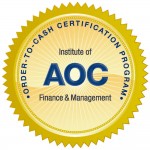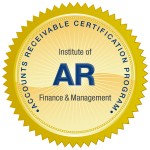
- Membership
- Certification
- Events
- Community
- About
- Help
CFOs are taking a hard look at their accounts receivable processes.
As one of the largest assets on the balance sheet, accounts receivable can have a big impact on the financial performance of an organization.
One way that CFOs are improving their organization’s accounts receivable processes is by rethinking the way it researches and resolves customer deductions – when a payment is made on an amount less than the net invoice amount.
Poor deductions management results in:
For many organizations, long cycles to resolve customer deductions is one of the biggest barriers standing in the way of better DSO.
It’s time to automate deductions management.
IOFM’s latest white paper details the three types of deductions, shows how manual approaches to deductions management increase the time, complexity and cost of accounts receivable, describes an automated approach to deductions management, and details the benefits of automation.
If your organization is looking to improve its accounts receivable processes, this white paper is for you!
Continuing education credits available:
 Receive 1 CEU toward IOFM AR and O2C certification renewal! The Accounts Receivable Certification Program is designed to establish standards for the profession and recognize accounts receivable professionals who, by possessing related work experience and passing a comprehensive exam, have met stringent requirements for mastering the accounts receivable body of knowledge.
Receive 1 CEU toward IOFM AR and O2C certification renewal! The Accounts Receivable Certification Program is designed to establish standards for the profession and recognize accounts receivable professionals who, by possessing related work experience and passing a comprehensive exam, have met stringent requirements for mastering the accounts receivable body of knowledge.
This white paper is provided free of charge and underwritten by a sponsor. Following your download, you may be contacted by the sponsor with information about their products and services.
Continuing Education Credits available:
Receive 1 CEU towards IOFM programs:

 Receive 1 CEU towards maintaining any AR and O2C related program through IOFM! These programs are designed to establish standards for the profession and recognize accounts payable and procure-to-pay professionals who, by possessing related work experience and passing a comprehensive exam, have met stringent requirements for mastering the financial operations body of knowledge.
Receive 1 CEU towards maintaining any AR and O2C related program through IOFM! These programs are designed to establish standards for the profession and recognize accounts payable and procure-to-pay professionals who, by possessing related work experience and passing a comprehensive exam, have met stringent requirements for mastering the financial operations body of knowledge.
What are you waiting for?
